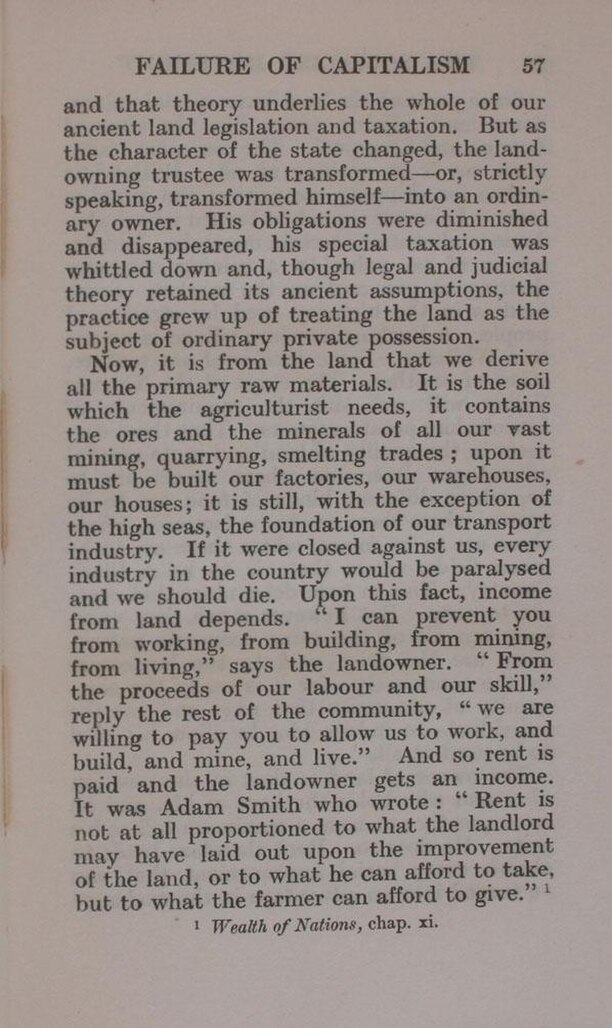and that theory underlies the whole of our ancient land legislation and taxation. But as the character of the state changed, the landowning trustee was transformed—or, strictly speaking, transformed himself—into an ordinary owner. His obligations were diminished and disappeared, his special taxation was whittled down and, though legal and judicial theory retained its ancient assumptions, the practice grew up of treating the land as the subject of ordinary private possession.
Now, it is from the land that we derive all the primary raw materials. It is the soil which the agriculturist needs, it contains the ores and the minerals of all our vast or quarrying, smelting trades; upon it must be built our factories, our warehouses, our houses; it is still, with the exception of the high seas, the foundation of our transport industry. If it were closed against us, every industry in the country would be paralysed and we should die. Upon this fact, income from land depends. "I can prevent you from working, from building, from mining, from living," says the landowner. "From the proceeds of our labour and our skill," reply the rest of the community, "we are willing to pay you to allow us to work, and build, and mine, and live." And so rent is paid and the landowner gets an income. It was Adam Smith who wrote: "Rent is not at all proportioned to what the landlord may have laid out upon the improvement of the land, or to what he can afford to take, but to what the farmer can afford to give."[1]
- ↑ Wealth of Nations, chap. xi.
